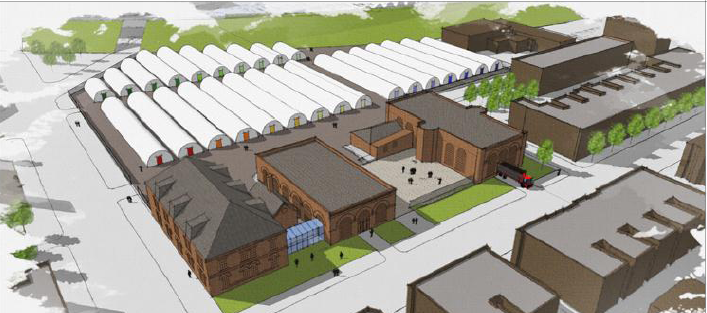When entrepreneurship is a national fixation and flowering tech scenes are joined by nonprofit leaders, community activists, artists and others like them, you find social enterprise growing.
That’s “any commercial activity that leads to a positive social outcome,” said Rodney Foxworth, a chapter leader of the Maryland Social Enterprise Alliance and a co-organizer of Baltimore’s monthly Social Enterprise Breakfast.
The other frequently used word for this type of work is social entrepreneurship, and there are plenty of local examples. Mission: Launch offers job training to ex-offenders. The Greater Washington Green Jobs Corps trains workers from impoverished neighborhoods in cleantech. The forthcoming Baltimore Food Hub will offer space for food businesses and job training.
The point here, echoed by Kunal Parikh, the Johns Hopkins graduate student who also runs the university’s Social Innovation Lab, is that Baltimore has problems and entrepreneurs who want to create solutions. That’s an opportunity, one that other big troubled cities, like Detroit, New Orleans and Philadelphia, are talking about.
“What if every business had a social mission?” asked Parikh in his presentation at Tuesday’s Baltimore Innovation Week State of Startups event. Along with Foxworth, Parikh is trying to raise awareness that profit and mission can mix and create the resources for those with that goal to succeed here in Baltimore.
“We’re trying to get to the root cause to change systems,” said Foxworth, 29. That’s always been the work of nonprofits, except now these groups are looking to blend their social missions with commercial components to keep their projects sustainable, and not wholly dependent on capital fundraising or donations from deep-pocketed supporters.
And while some nonprofits, like the East Baltimore-based Humanim, have found a way to build up commercial ventures to sustain their socially-focused work, there’s still plenty of growing left to do on social entrepreneurship in Baltimore.
“We’re in the same place with this where local tech was 10 years ago,” Foxworth said.
Social entrepreneurship community building identity in Baltimore







